Among the Pollinators
For Tennessee writers, our environment’s fate hinges on unearthing the truth about where we stand
I am as native a Tennessean as I am a writer. In me, the origin stories of these two identities are inseparably entwined. I could not hope to parse them if I tried. From the start, the lands of my native state have informed my work as strongly as any other force that I’ve encountered.
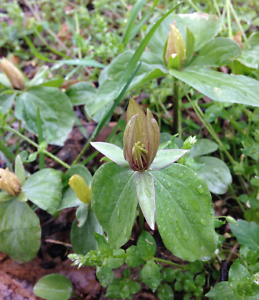
On the page, I’ve composed version after version of the dark woods that surround the abandoned grounds of a Hickman County charcoal plant — land soon to become a Superfund site — where my grandfather once led me by my small hand, exploring the ruins of his work life. Or the top of a wooded ridge in Cheatham County, where for a decade I was nurtured and cooled by a heat shield created by the forest, until that protective respite all but vanished due to nearby logging.
When I look across Tennessee’s literary ecosystem, I see how many of our writers feel compelled to write about their relationship to the land. Some have intertwined their literary vision with an environmental mission. Others have devoted their work to excavating truths about our history that have lain buried for too long.
We must open ourselves up to new ways of comprehending and relating to the natural world we inhabit — to the remarkable biodiversity of our ecosystem and to the barrage of escalating threats it now faces. In an era of collective trauma and aggressive conflict over basic agreements about what constitutes fact, the willingness to commit to this path does take real vulnerability.
So does art-making, as all writers know.
What does it mean for writers to be called to write about our land — our place of origin, our adopted homes, or our whole imperiled planet — during a time of continuous, overlapping crises? How do we prioritize our concerns? How can we endure the overload of troubling input and alchemize it all into fresh, compelling literary form?
Seamus Heaney, whose Northern Ireland origins provided him a bottomless reservoir of rich but fraught material for his poems, once insisted, “What matters is the shape-making impulse, the emergence and convergence of an excitement into a wholeness.”
If we can withstand our own vulnerability in these times, then this shape-making impulse can light our way. Many of our state’s writers have been following their own, opening up new ways for us to experience the natural world’s incomprehensible complexity and interconnectivity.
What follows is merely a glimpse of the diverse landscape of writers in Tennessee engaging the subject of the environment in thoughtful or unexpected ways. Through one innovation of form after another, these writers have devoted their work to breaking the spells of complacency and ignorance that threaten our future. They have set out to learn, like never before, everything that we can know about the ground on which we stand.
Awe & Attunement
To slow down and listen more deeply takes courage in a world that rewards maximizing productivity and profitability. A number of our literary writers, however, want us to do far more than slow down. In their work, they are devoted to shifting how we perceive life itself. They ask us to shake off the limiting blinders of our humanness, if only for moments at a time, and attune ourselves to a vastly greater story than our own.
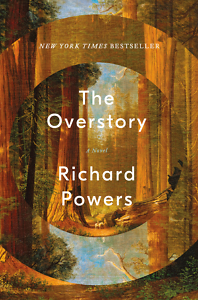 Novelist Richard Powers was drawn to the old-growth forests of the Smoky Mountains while writing his 2018 novel, The Overstory — so much so that he now lives there. Like many before him, Powers found that those mountains replenished his creativity, which had grown depleted by the labor required to complete The Overstory, a masterwork of environmental fiction that seeks to expand our capacity for comprehending the ancient complexity of trees’ lives.
Novelist Richard Powers was drawn to the old-growth forests of the Smoky Mountains while writing his 2018 novel, The Overstory — so much so that he now lives there. Like many before him, Powers found that those mountains replenished his creativity, which had grown depleted by the labor required to complete The Overstory, a masterwork of environmental fiction that seeks to expand our capacity for comprehending the ancient complexity of trees’ lives.
On the opening page of the novel, a woman sits at the base of a pine. “The tree is saying things, in words before words.” But she cannot catch the fullness of its meaning. Surrounding trees lend their voices, too. But they know: “You miss the half of it, and more. There’s always as much belowground as above.”
In a later scene, a woman who has been gazing out of her office window every day at a grove of ponderosa finally visits them in person. She sniffs deeply into the trunk of one of the pines — slated to be chopped down soon — and experiences a Proustian moment of transport, but instead of being plunged into the well of her own memory, she seems drawn into the continuity of all time. “Her nose fills with a sachet beyond the crudity of words. Call it remembering. Call it prediction.” In Powers’ fiction, the perspective of nature gives us the gift of breathtaking expansion.
By contrast, the essays of Margaret Renkl, who served as editor of Chapter 16 for the first 10 years of its existence, provide us with another invaluable gift: a skillful, clear-sighted focus that is gloriously hyperlocal.
Born in rural Alabama but now a longtime Nashvillian, Renkl currently writes a weekly column in The New York Times that covers “the flora, fauna, politics, and culture of the American South.” This apt description conveys her ability to shift seamlessly from a naturalist’s observations to an activist’s arguments to a lyrical poet’s meditations — all in the span of a paragraph or two. This controlled agility makes her especially suited to potent nature writing for a wide readership. A collection of her NYT columns, Graceland, At Last, arrived last month.
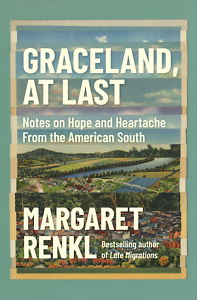 Renkl illuminates various aspects of the natural world by conveying a sense of rapt, open-hearted attention. As a result, her observations feel especially fresh, even if she’s describing the familiar birds, insects, and plants in a typical suburban yard. Interspecies bird spats, the sudden appearance of a mosquito-spraying truck, and a dead hackberry tree spilling a hidden hive of bees — under Renkl’s gaze, all of these moments unfold with keen suspense and vibrant detail.
Renkl illuminates various aspects of the natural world by conveying a sense of rapt, open-hearted attention. As a result, her observations feel especially fresh, even if she’s describing the familiar birds, insects, and plants in a typical suburban yard. Interspecies bird spats, the sudden appearance of a mosquito-spraying truck, and a dead hackberry tree spilling a hidden hive of bees — under Renkl’s gaze, all of these moments unfold with keen suspense and vibrant detail.
Her accounts from the wider field contain no less elegance: “From a distance, a river looks less like a feature of the terrain than like a massive, mysterious animal. A river is a sleek, writhing being.” When the subject at hand is the miserable level of toxic pollution in our state’s waterways, her language’s sweeping beauty is nothing short of merciful. As she pulls a wider frame, the intimacy of her close-up perspective remains intact.
Within the frame of the familiar, Renkl asks us to look deeper, thereby seeing more of the natural processes that are occurring all the time, whether we pay them heed or not. Of course, our obliviousness disrupts these vital life cycles, in ways that are increasingly glaring and systemically destabilizing.
Perhaps her unique focus is what makes Renkl such an effective advocate for our world’s pollinators, the threats they face, and as a result, the threats we face by making our environments uninhabitable for them. She has written with devastating clarity about the impact of common herbicide and insecticide use. She has also catalogued community efforts to fight back against the prevalence of nonnative plants, like squads of volunteer weed pullers and urban shepherding.
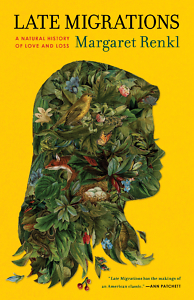 The title work from Late Migrations, Renkl’s luminous and original debut essay collection, conveys the everyday details of maintaining a garden of pollinator-friendly native species in her own “scruffy half-acre lot.” Renkl plants “coreopsis and coneflower and sage and lavender and bee balm and a host of other wildflowers,” while knowing that all around her, the threats — from her carelessly bee-killing neighbor to large-scale herbicide-driven destruction — keep coming.
The title work from Late Migrations, Renkl’s luminous and original debut essay collection, conveys the everyday details of maintaining a garden of pollinator-friendly native species in her own “scruffy half-acre lot.” Renkl plants “coreopsis and coneflower and sage and lavender and bee balm and a host of other wildflowers,” while knowing that all around her, the threats — from her carelessly bee-killing neighbor to large-scale herbicide-driven destruction — keep coming.
One hopeful essay in Graceland, at Last, “Making Way for Monarchs,” details a project implemented by the Tennessee Department of Transportation to create pollinator gardens in highway medians and roadsides. Overcome by the discovery of a thriving pollinator meadow near a state welcome center, teeming with wildflowers and insect sounds, Renkl writes, “While I stood there, dumbfounded, a monarch butterfly floated past. I was too stunned to take its picture.”
Renkl writes with a deep understanding that our long-term global survival depends upon the health of the small, the overlooked, and the migratory. Their ephemeral presence in our midst is therefore of utmost value, and when we care for their needs, we serve the cycles of nature in ways that also sustain us in richer, less tangible ways.
***
Poet Jesse Graves grew up in Sharps Chapel and now serves as East Tennessee State University’s poet-in-residence. In recent collections like Specter Mountain, co-written with fellow Southern poet William Wright in 2018; 2020’s tender, observant Merciful Days; and the newly published Said-Songs: Essays on Poetry and Place, Graves foregrounds the perspective of the land.
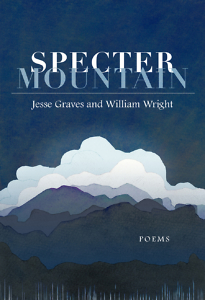 Specter Mountain in particular engages the disparity between the ancientness of its Appalachian setting and the perspective of its human inhabitants, whose knowledge and memory are minuscule by comparison. In numerous poems, Graves and Wright give this mountain’s origin story the grandeur and majestic scope it deserves, narrating the ancient, fiery tumult of elements from which “Appalachia rose / enfolded in a volcanic gown.”
Specter Mountain in particular engages the disparity between the ancientness of its Appalachian setting and the perspective of its human inhabitants, whose knowledge and memory are minuscule by comparison. In numerous poems, Graves and Wright give this mountain’s origin story the grandeur and majestic scope it deserves, narrating the ancient, fiery tumult of elements from which “Appalachia rose / enfolded in a volcanic gown.”
The humans who populate Specter Mountain face haunting encounters that evoke an ineffable, ghostly history just out of their grasp. Other times, as in “Drought’s End,” they face the kind of hardships tied to livelihoods drawn from the changeable, vulnerable land: “Heat-bedraggled hills // hung like stinking curtains always mild wet, mildewed. / Farms wilted and cracked, their families gone husk and spindle, / all throats without slake.”
The mountain continues to assert its impersonal yet wondrous resilience, while the humans struggle to comprehend change, impatiently expect nature’s cooperation, or take its lifegiving resources without thought to consequences. But questions from the humans do arise, questions that open up moments when the barriers between human and landscape seem momentarily to thin. For the humans involved, however, the impact of such experiences is humbling. Graves and Wright distill this dynamic into these startling lines from “Questions for the Mountain”:
Why do you remain still in the human season?
Because your season is fleeting, and you are as broken as I.What do you feel when your garments glow in fall?
The fire scalds me just as it would scald you.What do you think of those who hew your sides and build?
What they build molders in one quadrillionth of a nanosecond of earth-time.Do you not feel pain from how men have craved and carved you?
I have felt a pain beyond your reckoning.What will I see in your creeks in the warmer season?
You will see what I allow you to see.
Another Tennessean advocate for approaching the natural world on its own terms is David George Haskell, a nonfiction author and professor of biology at Sewanee: The University of the South. Haskell’s work is a powerful testament to the creative ingenuity generated when a writer fully commits to the pursuit of understanding nature’s complexity and boundless interconnectedness — and how our relationships to these profound, ubiquitous natural processes can open up for us in new ways and change us for the better.
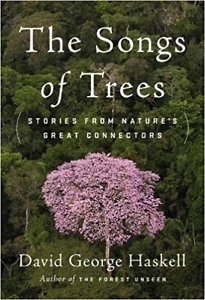 In his 2013 debut book, The Forest Unseen, and 2018’s dazzling follow-up, The Songs of Trees, Haskell asks us to find new ways of perceiving the lives of trees. Listening to “the songs of trees” requires us to push beyond what we have previously understood and enter into “the physicality of sound, the stories that brought sound into being, and our own bodily, emotional and intellectual responses.”
In his 2013 debut book, The Forest Unseen, and 2018’s dazzling follow-up, The Songs of Trees, Haskell asks us to find new ways of perceiving the lives of trees. Listening to “the songs of trees” requires us to push beyond what we have previously understood and enter into “the physicality of sound, the stories that brought sound into being, and our own bodily, emotional and intellectual responses.”
In a 2019 essay in Emergence Magazine titled “The Voices of Birds and the Language of Belonging,” Haskell extends that literary discussion to the nature of birdsong, birds’ hearing, and how we might learn better ways of listening to them. As with trees, he argues for us to direct our inquiry into these “parallel worlds of experience.”
Why such a close emphasis on sound? “Sound is a particularly powerful connector because it travels through and around barriers, finding us and calling us out of inattention.”
Haskell encourages us to bring this crucial wisdom into our entire relationship to the natural world: “As we listen and seek to connect, we should remember and honor this difference. At the same time, let us not allow otherness to bar the door to kinship, curiosity, and imagination. There is a bridge. That bridge is made from the gift of our attention.”
Also found at Emergence is a collaborative VR film called “The Atomic Tree,” based on the final chapter of The Songs of Trees. In that chapter, Haskell describes a Japanese white pine bonsai tree, hundreds of years old, which somehow managed to survive the atomic blast at Hiroshima. Decades later, this tree’s Japanese owners presented it to the United States as a gift of peace, furthering its power as an emblem for resilience under existential threat and for the necessity of recognizing our interconnectedness.
“The future, the unfolding telos,” Haskell writes, “is not contained in any self, in a tree seed or human mind, but has its origin and substance in living strands of relationship.”
Secrets & Sprawl
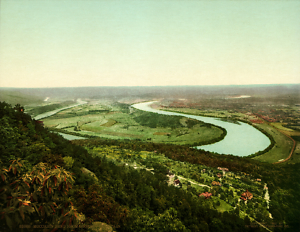
For some writers, however, considering the landscapes of Tennessee is to hold in mind other, far less life-sustaining aspects of its nature and history. For these Tennesseans, that search requires a confrontation with the troubled secrets of our history, concealed in the depths of our landscape, everywhere we step. These writers know that, in order for us to discover a livable future for our world, we must unearth the truth about where we stand now, exposing human vulnerability alongside the vulnerabilities of the land itself.
I Can’t Talk About the Trees Without the Blood, the arresting title of Nashville poet Tiana Clark’s stunning 2018 debut collection, evokes the murderous legacies of slavery and lynching that haunt our landscape. Earlier this year, Nashville Scene published a moving essay by Clark, “Treacherous Joy: An Epistle to the South,” which addresses the apparently perplexing pull that she felt to return to the state of her childhood after years of wanting to leave. “To love a landscape felt elusive and abstract to me as a kid. Still does. What does it mean to be tethered to the psyche of a state?”
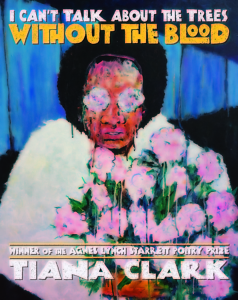 Her poem “Soil Horizon” addresses the presence of deadly history in locations that have been rebranded for new use. “My husband’s mother wanted to take the family portrait / at Carnton Plantation. I was the only person she called to ask // if it was okay. She said We could redeem the land with our picture — / my brown skin acrostic to the row of their white. She said Can’t we / just let the past be the past?”
Her poem “Soil Horizon” addresses the presence of deadly history in locations that have been rebranded for new use. “My husband’s mother wanted to take the family portrait / at Carnton Plantation. I was the only person she called to ask // if it was okay. She said We could redeem the land with our picture — / my brown skin acrostic to the row of their white. She said Can’t we / just let the past be the past?”
But Clark is moved to ask: “How do we stand on the dead and smile? I carry so many black souls / in my skin, sometimes I swear it vibrates, like a tuning fork when struck.” Clark insists that “[e]ven the dark layers of dirt must testify.”
Later, as light rain falls on their photo shoot, the water begins to reach into “the bright green topsoil, fertile with the past: organic and holy, wet as Dixie / myth — mixing with iron, clay, aluminum, and revision — romancing the dirt // and undead, churning the silt in the subsoil, steeping further down — deep, deep / into the pocket of earth, to the parent material, layers of large unbroken rocks, // down into the antebellum base, the bedrock of Southern amnesia.”
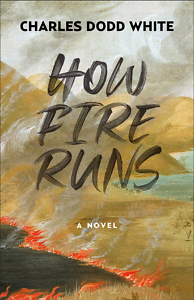 In his 2020 novel, How Fire Runs, Knoxville writer Charles Dodd White finds another way to fight against cultural denial, invoking the devastating wildfires that blazed through the Smokies in 2016 while an equally destructive influence — white supremacy — takes hold. Throughout this novel, which follows an organized group of white supremacists attempting to build a stronghold in an East Tennessee town, the threat of perilous drought conditions looms over the volatile atmosphere. It’s no accident that the novel’s protagonist — a former Marine who fights this racist incursion from his seat on the local county commission — runs a plant nursery and supports veterans by engaging them in reforestation efforts on local lands. In the final third of the novel, White deftly aligns environmental disaster with the insidious spread of emboldened white nationalism.
In his 2020 novel, How Fire Runs, Knoxville writer Charles Dodd White finds another way to fight against cultural denial, invoking the devastating wildfires that blazed through the Smokies in 2016 while an equally destructive influence — white supremacy — takes hold. Throughout this novel, which follows an organized group of white supremacists attempting to build a stronghold in an East Tennessee town, the threat of perilous drought conditions looms over the volatile atmosphere. It’s no accident that the novel’s protagonist — a former Marine who fights this racist incursion from his seat on the local county commission — runs a plant nursery and supports veterans by engaging them in reforestation efforts on local lands. In the final third of the novel, White deftly aligns environmental disaster with the insidious spread of emboldened white nationalism.
One Tennessee writer who has long worked to restore a truthful relationship between humankind and the lands they take for granted, in the face of centuries of brutal injustice, is Marilou Awiakta, a poet of Cherokee descent. Her work, and the message it contains, provides an essential lodestone in the story of environmental literature in Tennessee.
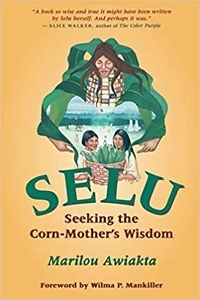 Last year, Awiakta appeared in USA Today’s Women of the Century list, which celebrated women of accomplishment and ingenuity in every state, honoring a century of women’s progress since the 19th Amendment’s ratification. Born in Knoxville and raised in Oak Ridge, Awiakta has now lived for decades in Memphis, advocating for the stories and wisdom of one of her people’s most enduring figures: Selu, the life-sustaining Corn-Mother.
Last year, Awiakta appeared in USA Today’s Women of the Century list, which celebrated women of accomplishment and ingenuity in every state, honoring a century of women’s progress since the 19th Amendment’s ratification. Born in Knoxville and raised in Oak Ridge, Awiakta has now lived for decades in Memphis, advocating for the stories and wisdom of one of her people’s most enduring figures: Selu, the life-sustaining Corn-Mother.
Woven together by a reverence for balance among genders and honor in our responsibilities toward the lands entrusted to our care, Awiakta’s third book, Selu: Seeking the Corn-Mother’s Wisdom, published in 1993, comprises an abundant collection of poems, stories, and essays embodying the spirit of Selu.
Knowing that we as a planet “teeter / on the turning point,” Awiakta tells Selu’s story “[a]gainst the downward pull, / against the falter / of your heart and mine.” By telling stories that model a richer, sustaining vision of harmonious cooperation with one another and with the natural world, she offers a “seed to greet the sunrise.”
***
Our cities and towns have seen tremendous waves of change, enduring relentless waves of development and resulting sprawl. Such breathless upheavals in the land inevitably set in motion chain reactions both foreseen and unforeseen. We have witnessed a cascade of reactions from our fellow citizens. Some take a stand against predatory encroachment. Others retreat into misguided or paranoid distractions that falsely promise personal safety, while continuing to undermine stability for the whole.
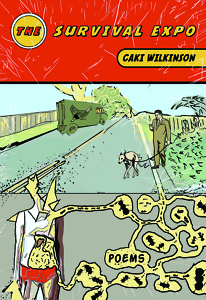 Memphis poet Caki Wilkinson writes with sharp observation and spiky wit about the volatile quality of our current everyday lives. The title poem of her 2021 collection, The Survival Expo, perfectly captures the bunker mentality that’s taken hold of so many. The poem describes a trip to a convention selling stockpiles of guns, ammo, and every gadget that a prepper might want for the apocalyptic future.
Memphis poet Caki Wilkinson writes with sharp observation and spiky wit about the volatile quality of our current everyday lives. The title poem of her 2021 collection, The Survival Expo, perfectly captures the bunker mentality that’s taken hold of so many. The poem describes a trip to a convention selling stockpiles of guns, ammo, and every gadget that a prepper might want for the apocalyptic future.
“It’s mostly men inside the Agricenter,” Wilkinson writes, “pricing seed vaults and metal shelters, knives / and MREs spread over dressed up tables / like alms for fraught apostles — Take, eat —.” The poem’s speaker acknowledges her own “tendency to double down pretending / things are fine” and takes in the Expo’s fraught atmosphere alongside her friend, who’s recovering from chemo, realizing that she is “not ungratified / by all these ways we have to stay alive.”
Renkl, writing through the lens of reported and personal essays, laments other effects of Nashville’s development-crazed transformation. In essays like “Demolition Blues,” she traces the ever-intensifying construction work that has made dramatic impact on Nashville, including the immediate surroundings of her own neighborhood. She weighs the benefits of some changes against the inarguable reality that not only have many families been priced out of their own city, but the land itself has been altered so much that innumerable nonhuman inhabitants have also lost their shelter.
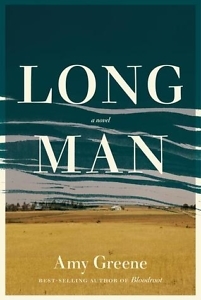 Though intensified by contemporary thirst for unstoppable development, such upheavals in the land are not new, as Amy Greene — a native of Hamblen County — depicted in her 2014 novel, Long Man. Set in a small rural Tennessee community in the 1930s, Long Man unfolds during the runup to that town’s destruction, thanks to a dam project managed by the Tennessee Valley Authority. Greene’s nuanced, idiosyncratic characters respond to this kind of forcible change in a gamut of ways, as they are swept up in currents of progress that demand a considerable cost.
Though intensified by contemporary thirst for unstoppable development, such upheavals in the land are not new, as Amy Greene — a native of Hamblen County — depicted in her 2014 novel, Long Man. Set in a small rural Tennessee community in the 1930s, Long Man unfolds during the runup to that town’s destruction, thanks to a dam project managed by the Tennessee Valley Authority. Greene’s nuanced, idiosyncratic characters respond to this kind of forcible change in a gamut of ways, as they are swept up in currents of progress that demand a considerable cost.
For decades, rural Tennessee communities faced the fallout of TVA’s work. Their fates were intertwined, a dynamic that Greene illuminates at every turn in her novel. In a review of Long Man included in his 2021 essay collection, Said-Songs, Jesse Graves, whose own family’s land succumbed to the TVA Norris Dam project, distills their dilemma this way: ”Was TVA removal a case of egregious government intrusion on private lives and private property, or was it a necessary sacrifice by some for the good of the many, a manageable consequence of progress for the common good?” Graves has also addressed this subject in his own poetry, as in “The Sunken Mill”: “Powell River moves as a basin ghost / beneath the crush of Senator Norris’ lake and dam.”
In Selu, Marilou Awiakta provides a detailed, stirring account of the 1979 conflict between the Eastern Band of Cherokee and TVA over the building of Tellico Dam, which drowned Chota, a sacred site and ancient Cherokee capital. For many, these events echoed the long history of broken treaties and callous disregard that the Cherokee have endured at the hands of the American government, culminating in their forced removal in the 1830s, the deadly catastrophe known as the Trail of Tears.
In the 1970s, a campaign to the save the endangered snail darter in the Tellico River gained far more traction in the wider public eye than the Cherokees’ powerful objections. In the end, though, TVA prevailed over every argument, and the Cherokee protestors had no choice but to watch the manmade floodwaters rise.
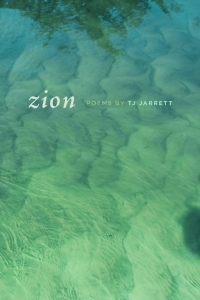 Cycles of oppression create an incalculable cumulative cost, but many of our writers have sought out language and literary forms to unearth these hidden injustices and bring them forth — a necessity, if we have any hope of moving toward a more truthful future. One such writer is the poet T.J. Jarrett, who lived in Nashville for many years. Jarrett has explored the wider legacy of murderous racism through poems that involve intimate portrayal of her own Southern family history.
Cycles of oppression create an incalculable cumulative cost, but many of our writers have sought out language and literary forms to unearth these hidden injustices and bring them forth — a necessity, if we have any hope of moving toward a more truthful future. One such writer is the poet T.J. Jarrett, who lived in Nashville for many years. Jarrett has explored the wider legacy of murderous racism through poems that involve intimate portrayal of her own Southern family history.
Jarrett’s stunning poem, “How to Love the Country of Your Birth,” from her 2014 collection, Zion, churns together the personal and the national to convey the true toll that cycles of systemic oppression take: “Build your city, / burn it down. Build your / city, burn it down. Exhaust // all metaphors for fire before / repenting.” The poem then poses a vital, urgent question about the choices we face concerning the future of our land:
Will you stand long enough,
will you endure the night fire,
collect all that must be saved —its embers cooling like a bullet
in your cupped hands?Will you cleave the heart in half,
will you cradle your city there,will you carry it?
Crisis & Convergence
As we head into our future, can we withstand the full force of the collective circumstances that we face? Are humans designed to hold this kind of extremity as an everyday fact of our lives?
 Richard Powers recently published a new novel, Bewilderment, which is bookended by sequences set in the Smokies. An early scene finds father and son by their campfire, surrounded by woods untrammeled by other humans. Almost in a trance, the young son, named Robin, says: “I feel like I belong here.” Only pages later, Robin melts down, raging and tearful, in an excruciating scene depicting a not-uncommon sight in the Smokies: stacked-up traffic and mobs of eager tourists, rushing in with cell phones and “howitzer lenses” to crowd a family of black bears. Overwhelmed with contempt for his fellow humans’ behavior, Robin is inconsolable.
Richard Powers recently published a new novel, Bewilderment, which is bookended by sequences set in the Smokies. An early scene finds father and son by their campfire, surrounded by woods untrammeled by other humans. Almost in a trance, the young son, named Robin, says: “I feel like I belong here.” Only pages later, Robin melts down, raging and tearful, in an excruciating scene depicting a not-uncommon sight in the Smokies: stacked-up traffic and mobs of eager tourists, rushing in with cell phones and “howitzer lenses” to crowd a family of black bears. Overwhelmed with contempt for his fellow humans’ behavior, Robin is inconsolable.
“I kept reading accounts of the toll our growing environmental catastrophe is taking on the young,” Powers writes in a prefatory Note to Bewilderment. “I began to see how we were raising a generation of troubled kids born homesick for a place they never knew.”
Into his novel’s loving but grief-stricken duo of father and son, Power attempted to pour his own sense of urgency about our world’s future and his conviction that it is our connections to wild places that may sustain us. “A childlike love for our wild, entangled home is the only thing large enough to cure what is wrong with us.”
Late in the novel, they return to the Smokies under drastically different circumstances. They listen to the mountains’ nighttime sounds, knowing that, out there, “[e]very creature alive would feel all the things they were built to feel.” Then Robin asks his father, with all the world’s wonder, pain, perplexity, and hope contained in his words: “Can you believe where we are?”
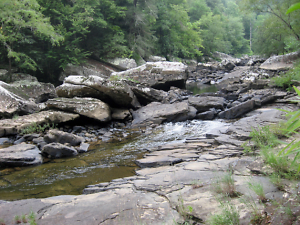
Cultivating greater wonder and agility in our perspectives is a subject that surfaces again and again in environmentally focused writing. Writers like Powers and Renkl show particular adeptness in their approach to the difficulties of contemplating our threatened future, respecting the need for collective action and the necessity of inner resilience in the face of grief and fear.
As Margaret Renkl argues in her stirring essay, “The Case Against Doing Nothing”: “Despair is paralyzing, and we have no time left for paralysis.” She reminds us that dismissing one another’s attempts to find ways of addressing climate emergency in our daily lives — a wearying phenomenon that most of us have experienced, in person or over social media — only bolsters the confidence of political or industrial leaders who remain determined to cause our planet further harm.
In a recent column, titled “I Don’t Want to Spend the Rest of My Life Grieving,” Renkl addresses the fraught, fleeting nature of our human perspective, especially at a time when every conceivable measure of ecological threat seems to be escalating. Through close, meditative attention to the lifegiving processes of nature that still occur everywhere, constantly around us, she shows that we can shift away from grief and toward times of quietude, perhaps toward something like understanding.
“The earth is breathing,” Renkl writes. “I can breathe, too, because it’s still breathing.”
***
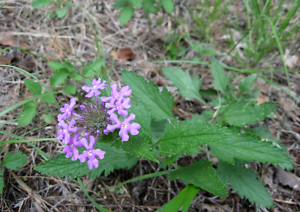
All this talk of grief makes me think of Demeter. Not her anguish for her daughter, trapped half of each year in Hades’ underworld — a grief which turned the earth itself barren under her feet. But instead I think of her stride, her endurance year to year. Anyone studying the cycles of nature knows that the processes of winter are as vital as spring’s abundances.
Did Demeter know this as she walked the earth in her confusion and loss, creating the turn of seasons? Her steps across the landscape unleashed new form via her experience of the world, each season made anew through the fresh cries of her loss, and then again, through her renewal and joy. Like Selu, her greatest gift to us was the skill to grow crops. A legacy of tending the land in sustainable ways, alive to the rhythms of our world.
By the nature of our work, writers walk something like her cyclical path, seeking form through what’s happening to us now — how this moment rhymes with steps we took in seasons past and how the next moment looks as it comes up over the horizon — even a horizon that we know may contain inexpressible danger and loss.
Future & Form
It matters that writers will go on with our work, that we’ll press forward in search of new visions, new forms. Like Heaney insisted, we’ll go on serving that shape-making impulse. Seeking a worthy contribution to the unfathomable, astonishing whole.
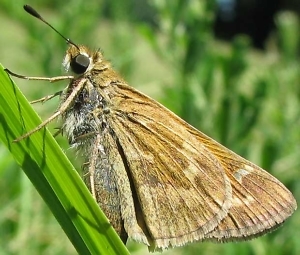
We need new works of art that know our hillsides, riverbeds, weed-choked fields, and old-growth-covered mountain coves in richer, deeper ways than we can currently imagine. We need works that can cover great distances and pick up unknown frequencies.
We cannot know which works will travel furthest, which winged seeds will plant themselves in the right minds at the right times, opening the way forward for everyone in ways that we haven’t dreamed of yet, that we will not live to see.
We need works summoned through new ways of relating to our imperiled home. Works that help us find untapped wellsprings of potential. New forms of potential — that’s what we must go on creating, no matter the odds.
As we’ve seen, a diverse range of Tennessee’s writers have embraced this challenge, not only sharing their own experiences or observations but also giving voice to those who have been silenced. Some are devoted to discovering how to present the voices of nature itself in ways that humans can allow themselves to hear. All these writers are calling us out, waking us up to see and hear our own home anew.
For me, this mission also lies close to the heart of our task at Chapter 16. We are something like a garden here — not of the manicured, close-clipped showpiece variety, but more like one of Renkl’s treasured pollinator meadows. We thrive on the fleeting glories of daily interconnectivity: on giving pride of place to native wildflowers, to travelers who waft through on their way to far-off destinations, to the rich, ragged undergrowth that gives support and nourishment to the whole, and to an ecosystem stretching farther afield than we will ever know.

Emily Choate is the fiction editor of Peauxdunque Review and holds an M.F.A. from Sarah Lawrence College. Her fiction and nonfiction have appeared in Mississippi Review, Shenandoah, The Florida Review, Rappahannock Review, Atticus Review, Tupelo Quarterly, Late Night Library, and elsewhere. She lives near Nashville, where she’s working on a novel.


